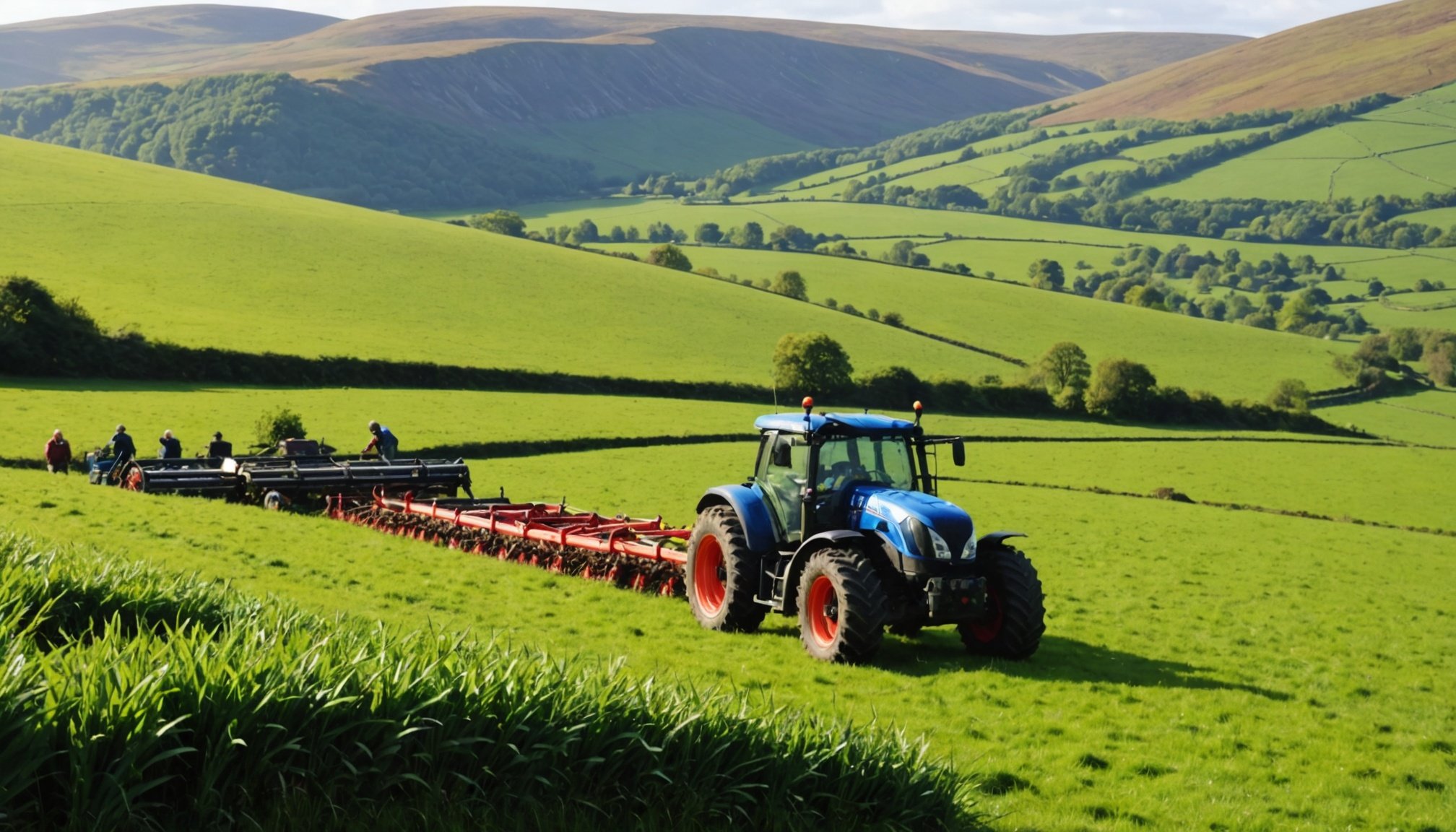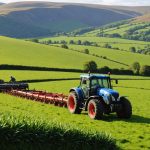Overview of Sustainable Agriculture in Upland Areas
Sustainable agriculture in upland areas plays a critical role in preserving environmental health and ensuring food security. This approach to farming focuses on balancing long-term ecological stability with agricultural productivity. In these regions, the natural challenges, such as steep slopes, poor soil conditions, and limited access to water resources, necessitate eco-conscious strategies to maintain the land’s fertility and reduce erosion.
Upland farming requires additional attention to be successful under such conditions. By incorporating eco-conscious practices, farmers can minimise soil degradation and enhance biodiversity. Farmers often employ techniques such as crop rotation, agroforestry, and organic farming to sustainably manage resources. These methods help to conserve nutrients within the soil and maintain a healthy, productive ecosystem.
Avez-vous vu cela : Exploring how uk zoos contribute to worldwide wildlife conservation efforts
Adopting sustainable agriculture in upland areas offers numerous benefits, transforming the way farming operations are managed. By enhancing soil health and optimising water usage, these practices help increase yields while reducing environmental impacts. Furthermore, sustainable upland farming supports local communities by promoting food sovereignty, empowering farmers through knowledge-sharing initiatives, and ensuring resilient agricultural systems.
In conclusion, the emphasis on sustainable agriculture in upland regions is imperative for both the environment and the communities that depend on these landscapes for their livelihood.
Avez-vous vu cela : Unveiling the successes and challenges of rewilding projects throughout the uk
Top Eco-Conscious Farming Techniques
Eco-friendly farming techniques are crucial for maintaining environmental health and boosting productivity in agriculture. Crop rotation, for instance, is not only a sustainable method but also enhances soil fertility. By alternating different crops in a sequence on the same land, it disrupts pest cycles and reduces soil erosion. This method enriches the soil, ensuring nutrient diversity. In upland agriculture, adapting these rotation patterns can be especially beneficial due to the varying elevations and climate conditions.
Another effective technique is agroforestry, which involves integrating trees with crops and livestock. This method provides shade, reduces wind erosion, and enhances biodiversity, playing a significant role in upland farming. The tree cover improves water retention and soil health, creating a more resilient farm ecosystem.
Lastly, the use of permaculture principles in upland landscapes supports sustainable agriculture by imitating natural systems. It emphasizes using renewable resources and conserving energy. By planning farms based on the unique characteristics of their landscapes, permaculture fosters a harmonious relationship between the land and its users. Together, these sustainable methods not only promote upland agriculture but also contribute to a healthier planet.
Case Studies of Successful Sustainable Farming
Exploring real-world examples aids in understanding how sustainable practices can transform upland farming into a thriving venture. Let’s delve into three successful case studies.
Case Study: Organic Sheep Farming
In the realm of organic sheep farming, a focus on natural resources and biodiversity has proven effective. Implementing sustainable practices such as rotational grazing and organic feed, these farms have seen improved soil health and animal welfare. The results speak volumes, with increased wool quality and decreased veterinary expenses.
Case Study: Integrated Crop-Livestock Systems
Integrated crop-livestock systems demonstrate another successful case study. By using crop residues as livestock feed and manure as crop fertilizer, these systems create a self-sustaining cycle. This integration not only enhances productivity but also reduces environmental impact through nutrient recycling.
Case Study: Community Supported Agriculture in Upland Areas
Community Supported Agriculture (CSA) in upland areas displays an innovative approach to upland farming. By connecting consumers directly with farms, CSA fosters community involvement and ensures financial stability. The measurable impacts are significant, with enhanced local food security and community engagement.
These upland farming examples offer valuable lessons in sustainability. Adaptability is key, as each farm may require unique approaches. However, shared experiences indicate that collaboration and innovative thinking are crucial.
Environmental Benefits of Eco-Conscious Farming
Eco-conscious farming offers numerous environmental benefits, playing a crucial role in improving our planet’s health. One significant advantage is the enhancement of soil health. Sustainable practices such as crop rotation and organic fertilisers improve nutrient levels in the soil and enable carbon sequestration. By absorbing and storing carbon, these methods help mitigate climate change.
Biodiversity thrives under eco-friendly farming practices. By reducing the use of pesticides and synthetic fertilizers, farms become sanctuaries for various species, promoting a rich and balanced ecological impact. Increased biodiversity aids in developing resilient ecosystems, offering habitats for beneficial insects, birds, and other wildlife that maintain ecological balance.
Water conservation is another pivotal aspect in eco-conscious farming. Employing water-efficient methods, such as drip irrigation and rainwater harvesting, conserves water resources, especially critical in upland farming areas where water scarcity prevails. These practices prevent water loss, thus ensuring the sustainable use of this precious resource.
Through eco-conscious farming, we can achieve a harmonious balance with nature, enriching biodiversity and enhancing our environment’s overall health. Integrating these mindful approaches into agriculture ensures food security while preserving natural resources for future generations.
Challenges in Implementing Sustainable Practices
Transitioning to sustainable farming faces myriad obstacles, making widespread adoption challenging, especially in upland agriculture. These hurdles can significantly impact implementation barriers that farmers encounter.
One of the primary barriers is financial constraints. Many farmers struggle to afford the initial investments required for sustainable methods. High upfront costs for eco-friendly equipment and technologies can be prohibitive, especially for smaller operations. Without adequate financial aid or incentives, transitioning remains an unreachable goal for many.
Access to resources is equally ambitious. Limited availability of essential resources, such as water and sustainable inputs, complicates efforts to adopt practices necessary for achieving sustainability. Furthermore, diverse climate challenges exacerbate issues for those engaged in upland farming, where weather patterns tend to be more capricious. Unpredictable rainfall, temperature variations, and natural disasters compounded by climate change can affect crop yields and discourage innovation.
An additional challenge arises from the education and knowledge gaps. Farmers may lack understanding or expertise in new techniques, hindering their capacity to incorporate sustainable methods effectively. Comprehensive education programs and accessible information are crucial for overcoming these obstacles.
Addressing these barriers will be essential to promote sustainable farming, paving the way for long-term environmental and economic benefits.
Expert Opinions and Recent Research Findings
Recent research on sustainable agriculture in upland areas has shed light on effective eco-conscious practices that promise to transform the farming landscape. Studies have shown that integrating biodiversity into farming practices not only improves crop yield but also enriches the soil’s nutrient profile. This research underscores the potential of sustainable farming to reduce the ecological footprint of agriculture.
Expert insights play a crucial role in guiding these sustainable practices. Agricultural specialists emphasize that adopting eco-friendly techniques, such as crop rotation and organic fertilization, can significantly enhance productivity in upland farming. Their expertise highlights the need for solutions that align with ecological preservation while ensuring farmers’ economic viability.
Collaboration among farmers emerges as vital; it fosters a community approach to upland farming studies. Continuous research fuels innovation by examining traditional methods, enhancing them with modern technology, and encouraging a supportive network for knowledge sharing. Farmers are inspired to explore and implement expert insights backed by scientific research for sustainable growth.
In conclusion, understanding and engaging with upland farming studies enables farmers to make informed decisions, optimize their practices, and contribute to a sustainable future.
Resources for Further Learning
Exploring sustainable agriculture resources is crucial for farmers wishing to adopt eco-friendly practices. The UK offers various organizations and educational initiatives dedicated to supporting these efforts. Among them, the Soil Association and Organic Farmers & Growers are notable for their dedication to promoting organic farming practices and providing certifications.
Numerous educational initiatives are accessible online, offering vast knowledge on sustainable techniques. Resources such as Farming Connect and the Royal Agricultural Society of England provide webinars and publications focused on the latest sustainable trends and technologies in agriculture. Delving into these resources can significantly help farmers understand and implement such practices effectively.
For hands-on learning, community initiatives and workshops serve as excellent platforms. Local groups often organize community workshops where farmers can share experiences and innovations related to sustainability. These gatherings not only facilitate knowledge exchange but also strengthen community ties by encouraging collaboration.
Support organizations, coupled with educational resources, are instrumental in facilitating the transition to sustainable agricultural practices. Engaging with these resources enables farmers to make informed decisions, contributing positively to environmental health and economic stability. By embracing these opportunities, farmers can be at the forefront of transforming agriculture into a resilient and sustainable sector.











